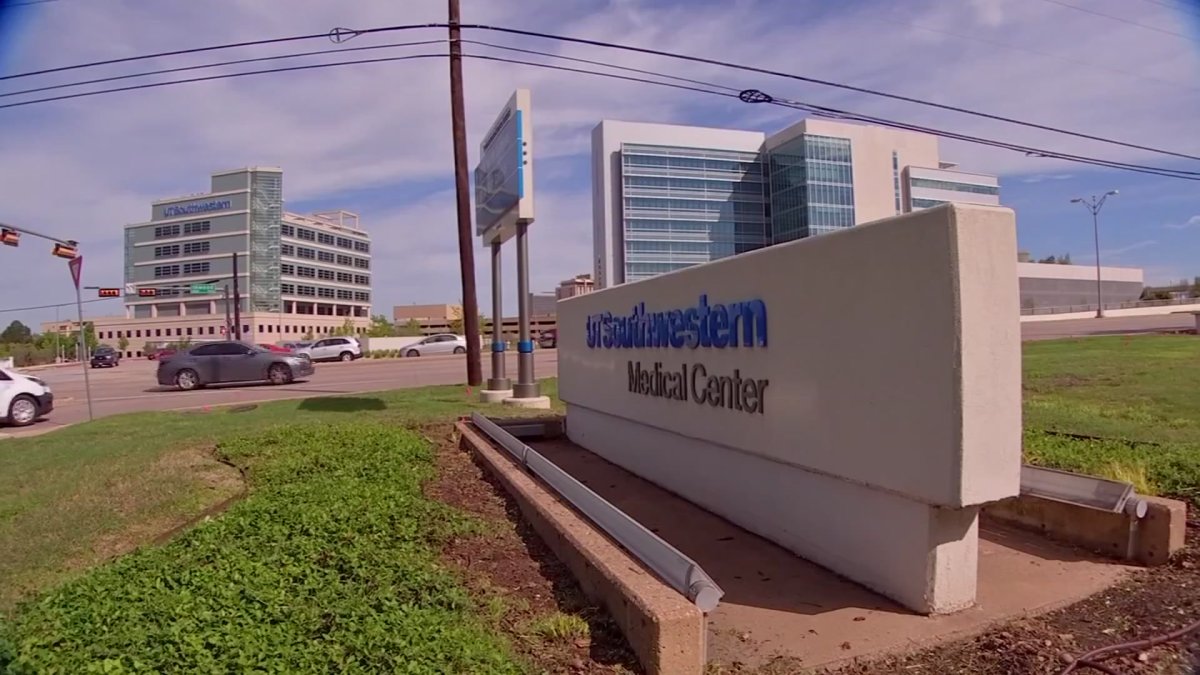
Groundbreaking research over the past few years at The University of Texas Southwestern Medical Center is giving hope to those battling breast cancer. NBC 5’s Alanna Quillen explains.
Groundbreaking research over the past few years at The University of Texas Southwestern Medical Center is giving hope to those battling breast cancer.
On Saturday morning, the outskirts of NorthPark Center in Dallas will be flowing with pink as the gathering place for Susan G. Komen's More Than Pink Walk. The walk refers to the idea that Komen is so much more than a color. Pink is powerful, the organization said.
As breast cancer survivors lean on each other for healing and reflection this weekend, researchers are sharing news of huge breakthroughs to ensure more women can overcome the disease.
In the next year, data predicts that more than 250,000 women in the United States will be diagnosed with breast cancer. That’s about 1 in 8 women who will get that life-changing phone call from their doctor.
Get DFW local news, weather forecasts and entertainment stories to your inbox. Sign up for NBC DFW newsletters.
But Dr. Heather McArthur, clinical director of breast cancer at UT Southwestern, said it’s still an exciting time to be treating breast cancer because there is hope.
“We’ve really had unprecedented successful drug developments in the recent years,” she told NBC 5.
McArthur said this groundbreaking research has led to dramatically improved outcomes and survival rates for breast cancer patients. That research is made possible by donations from organizations like Susan G. Komen.
“Both improved overall survival for patients with metastatic breast cancer and improved cure rates for women with lower stage breast cancer,” she said. "The only way that this type of innovation is possible is through innovative, thoughtful research.”
UT Southwestern is working on a number of projects looking into how certain drugs interact with patients.
“In looking at novel mechanisms of resistance to specific drugs. Why do some drugs work for some period of time and then stop working? And then there’s also a lot of work to being done in identifying new targets that could successfully be targeted by future drugs,” McArthur said.
Local
The latest news from around North Texas.
But some of the most life-changing work happening right now involves immune therapy.
“There’s been huge progress, not just since the 1980s and 1990s but in the last three to five years. Triple-negative breast cancer is typically a high-risk type of breast cancer that can be associated with early recurrences. It can be very aggressive in the metastatic setting. As recently as three years ago, we were dependent on chemotherapy alone to treat that disease, which is associated with some toxicity,” said McArthur. “Now we’ve had in the last couple of years FDA approval of immune therapy, a new class of drugs called antibody-drug conjugates. And these drugs are improving overall survival in a really meaningful way.”
Immune therapy research is something that McArthur specializes in.
"The basic idea is that you’re trying to harness one’s own immune system to recognize the specific features of a tumor and use that immune response against the tumor,” she said. “So just like you and I are different from everyone else on planet Earth, the biology of one’s tumor is likely to be different from everyone else has breast cancer, on a fundamental level."
McArthur said those treatments are helping even the most dire cases end in success.
“I think it’s worth reminding everyone that the vast majority of women who are diagnosed with early stage breast cancer are cured of their disease. It’s a journey to achieve that cure but the majority of women do achieve that," she said. "It’s only a small fraction of women who are diagnosed with metastatic breast cancer and again, there are unprecedented survival benefits now being seen in that population as well."
However, there’s still more work to be done, with the ultimate goal of eradicating cancer for good.
“A lot of women ask me the question, why me? Why was I affected? Less than 10% of affected women have a gene mutation like the BRCA gene mutation that explains the 'why me' question. But more than 90% of women don’t understand why they’ve been affected by breast cancer," said McArthur. “There’s still so much more work to do to identify the risk factors for breast cancer, both genetic and environmental."
At the end of the day, early detection is critical.
“Because the disease is much easier to treat and cure when detected early through mammograms, for example,” said McArthur.
Susan G. Komen’s More Than Pink Walk will have lots of resources and opportunities for women to learn more.
Everyone will start gathering at 8 a.m. Saturday, Oct. 23 on the Park Lane side of NorthPark Center’s parking lot. You can also participate virtually.